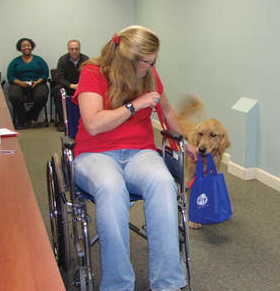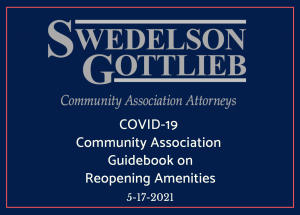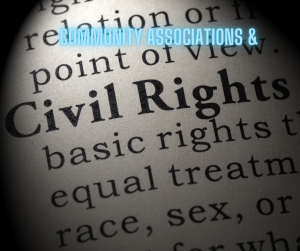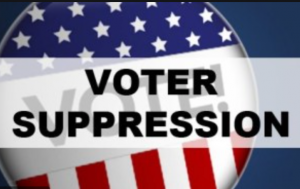 California community association attorneys, managers and others in the industry have differing opinions on how to properly and legally proceed with uncontested elections — elections in which the number of candidates is less than or equal to the number of board positions needed to be filled. Prior to 2020 when the election process and procedures were changed, the civil code did not expressly address voting by acclamation. Since 2020, the law has changed, permitting a vote by acclamation in narrow circumstances. Specifically, if an association is over six thousand units. We have heard that some attorneys are telling clients that they can still hold a vote by acclamation if their association has less than 6,000 units. We disagree.
California community association attorneys, managers and others in the industry have differing opinions on how to properly and legally proceed with uncontested elections — elections in which the number of candidates is less than or equal to the number of board positions needed to be filled. Prior to 2020 when the election process and procedures were changed, the civil code did not expressly address voting by acclamation. Since 2020, the law has changed, permitting a vote by acclamation in narrow circumstances. Specifically, if an association is over six thousand units. We have heard that some attorneys are telling clients that they can still hold a vote by acclamation if their association has less than 6,000 units. We disagree.
The California Civil Code requires, despite contrary provisions in an association’s governing documents or election rules, that all board member elections, including uncontested elections other than for associations that are 6,000 units or more, be conducted utilizing secret balloting. Associations must abide by these statutory requirements, including holding an election meeting and counting the ballots even if the number of candidates running is equal to or less than the number of board positions to be filled.
The primary, and perhaps most legally sound reason for abiding by formal procedure requirements is the language found in CA Civil Code 5100, which states that “(n)otwithstanding any other law or provision of the governing documents, elections regarding…election and removal of members of the association board of directors….shall be held by secret ballot in accordance with the procedures set forth in this section.” Surprisingly, however, not all community association attorneys agree that the word “shall” is mandatory, requiring that associations hold an election when, in their opinion, deeming the board voted in by acclamation as appropriate. But, there is strong legal precedent to the contrary and association’s would be remiss to follow this advice.
 Please catch Sandra L. Gottlieb’s article Dealing with Assistance Animals regarding processing reasonable accommodation requests for assistance animals featured in the CACM Fall Law Journal. In the article, Sandra discusses different types of requests, animal rules, and planning for accommodations. To read the full article, click here.
Please catch Sandra L. Gottlieb’s article Dealing with Assistance Animals regarding processing reasonable accommodation requests for assistance animals featured in the CACM Fall Law Journal. In the article, Sandra discusses different types of requests, animal rules, and planning for accommodations. To read the full article, click here.




 I was forwarded an article on flying the American flag at community associations that appeared in the Wall Street Journal which motivated this blog post. According to the article, Flag Day commemorates the adoption in 1777 of the U.S. flag. The article (
I was forwarded an article on flying the American flag at community associations that appeared in the Wall Street Journal which motivated this blog post. According to the article, Flag Day commemorates the adoption in 1777 of the U.S. flag. The article (

 Most California community association common area recreational amenities like pools, gyms, and tennis courts remain closed since March 2020, even though some restrictions have lifted. As the number of people who have been vaccinated increases, schools reopen, the state reopens, and more counties are opening throughout California, many associations wonder if it is time to revisit opening their amenities.
Most California community association common area recreational amenities like pools, gyms, and tennis courts remain closed since March 2020, even though some restrictions have lifted. As the number of people who have been vaccinated increases, schools reopen, the state reopens, and more counties are opening throughout California, many associations wonder if it is time to revisit opening their amenities. California community association attorneys, managers and others in the industry have differing opinions on how to properly and legally proceed with uncontested elections — elections in which the number of candidates is less than or equal to the number of board positions needed to be filled. Prior to 2020 when the election process and procedures were changed, the civil code did not expressly address voting by acclamation. Since 2020, the law has changed, permitting a vote by acclamation in narrow circumstances. Specifically, if an association is over six thousand units. We have heard that some attorneys are telling clients that they can still hold a vote by acclamation if their association has less than 6,000 units. We disagree.
California community association attorneys, managers and others in the industry have differing opinions on how to properly and legally proceed with uncontested elections — elections in which the number of candidates is less than or equal to the number of board positions needed to be filled. Prior to 2020 when the election process and procedures were changed, the civil code did not expressly address voting by acclamation. Since 2020, the law has changed, permitting a vote by acclamation in narrow circumstances. Specifically, if an association is over six thousand units. We have heard that some attorneys are telling clients that they can still hold a vote by acclamation if their association has less than 6,000 units. We disagree.

 I first heard about voter suppression in law school, where I learned that the United States has a long tradition of threatening voter access. I thought it was a thing of the past. But I have been surprised by recent news stories that tell us that there are real efforts in 2020 to make it harder for some Americans to vote. For example, a Memphis, Tenn., poll worker turned away people wearing Black Lives Matter T-shirts, saying they couldn’t vote. Robocalls warned thousands of Michigan residents that mail-in voting could put their personal information in the hands of debt collectors and police. In Georgia, officials cut polling places by nearly 10%, even as the number of voters surged by nearly 2 million.
I first heard about voter suppression in law school, where I learned that the United States has a long tradition of threatening voter access. I thought it was a thing of the past. But I have been surprised by recent news stories that tell us that there are real efforts in 2020 to make it harder for some Americans to vote. For example, a Memphis, Tenn., poll worker turned away people wearing Black Lives Matter T-shirts, saying they couldn’t vote. Robocalls warned thousands of Michigan residents that mail-in voting could put their personal information in the hands of debt collectors and police. In Georgia, officials cut polling places by nearly 10%, even as the number of voters surged by nearly 2 million.  By David Swedelson, Esq. Senior Partner and Community Association Attorney at SwedelsonGottlieb
By David Swedelson, Esq. Senior Partner and Community Association Attorney at SwedelsonGottlieb